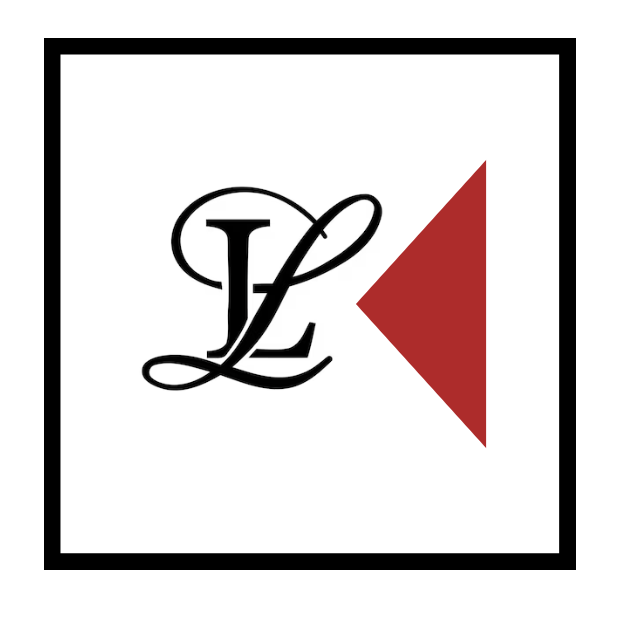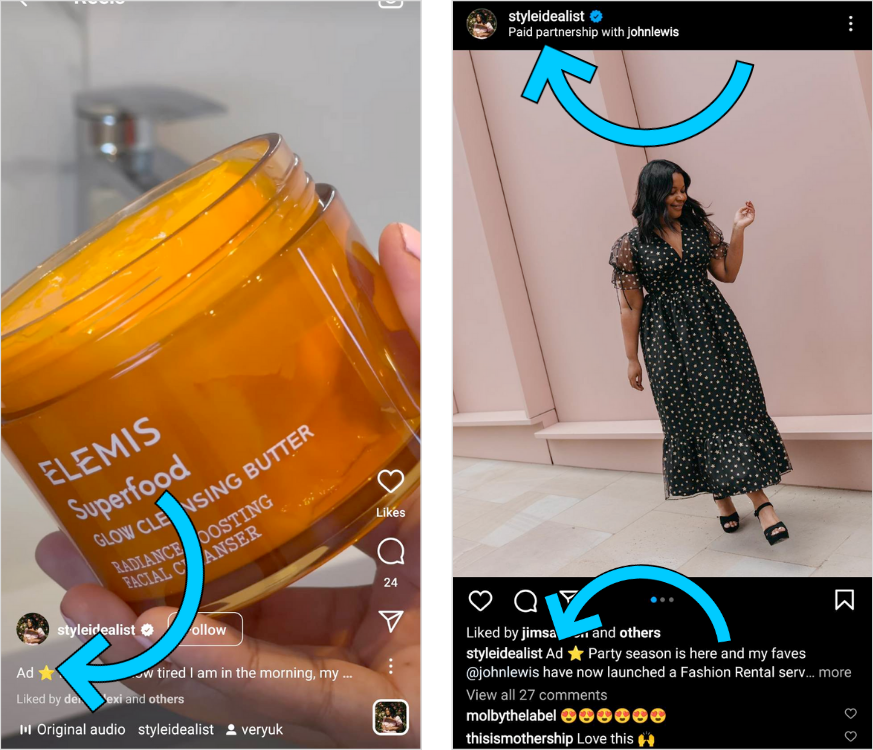The Essential Legal Guide for Influencers & Brands: How to Stay Compliant
The influencer marketing industry has transformed how brands connect with consumers, but this powerful channel comes with significant legal responsibilities that many creators and companies overlook. Both influencers and the brands that collaborate with them must understand their obligations under European and national laws to avoid substantial penalties and protect their reputations.
At LegalLens, we specialize in helping influencers and brands navigate this complex regulatory landscape. This guide outlines the essential compliance requirements you need to know - EU edition.
The Legal Status of Influencers: Understanding Your Commercial Obligations Under EU Law
Many content creators remain unaware that their promotional activities may classify them as commercial entities under European Union law. Unlike countries such as France or Italy that have implemented specific influencer legislation, Belgium applies existing commercial regulations to social media personalities. This legal framework carries significant implications for anyone engaged in brand partnerships or sponsored content creation.
When Does an Influencer Become a Commercial Entity?
According to EU and Belgian commercial law, influencers are classified as "undertakings" when they engage in promotional activities with any degree of regularity and receive compensation for their efforts. Importantly, this classification does not require influencing to be a full-time profession. Even part-time creators who occasionally collaborate with brands may fall under this legal definition if they accept payment or other benefits in exchange for promotional content.
Compensation is broadly interpreted under the law and extends beyond monetary payments. Free products, discounted services, travel accommodations, event invitations, and other non-cash benefits all qualify as forms of remuneration that could trigger commercial entity status. This means that influencers participating in gifting campaigns or affiliate programs may still be subject to business registration and compliance requirements, even if they never receive direct payments from brands.
Source: Pinterest
Mandatory Registration and Compliance Requirements
When classified as a commercial undertaking, influencers face specific registration and compliance obligations that vary significantly across European Union member states. While Belgium serves as one example—requiring registration with the Crossroads Bank for Enterprises (CBE) to obtain an official business identification number—other EU nations maintain distinct regulatory frameworks.
The VAT treatment of influencer income similarly differs by jurisdiction. Many countries, including Belgium, offer small business exemptions (typically for revenues under €25,000 annually), but crucial variations exist in how nations calculate this threshold and define qualifying compensation. Notably, all EU tax authorities universally consider non-monetary benefits like gifted products, travel perks, or services at their market value as taxable income. Germany's Gewerbeanmeldung (trade registration), France's micro-entrepreneur system, and Italy's Partita IVA requirements demonstrate how registration processes diverge, though all mandate proper documentation of both cash and in-kind earnings.
This regulatory patchwork creates compliance challenges for influencers operating across borders or collaborating with international brands. The common thread remains that once deemed a professional content creator, one must adhere to the business registration, tax reporting, and financial transparency rules of their country of operation—with penalties for non-compliance escalating as influencer marketing faces increased government scrutiny EU-wide.
The legal implications of this classification are frequently misunderstood. As noted by LegalLens's regulatory experts, many influencers mistakenly believe that sporadic brand collaborations or small-scale promotions exempt them from commercial regulations. However, recent enforcement actions demonstrate that authorities are increasingly scrutinizing social media content for compliance with business and advertising laws.
For influencers concerned about meeting these requirements, LegalLens offers specialized guidance on business registration, tax compliance, and ongoing legal obligations. Our team can help determine whether your activities qualify as commercial undertakings and ensure you maintain full compliance with evolving regulations.
Need clarity on your legal status as an influencer? Contact LegalLens today to schedule a comprehensive compliance evaluation and protect your growing personal brand.
Tax and Administrative Obligations for Influencers: A Comprehensive EU Compliance Guide
Once classified as commercial entities, influencers across the European Union must navigate a complex web of financial and administrative obligations. These requirements vary by member state but share common principles rooted in EU business and tax law.
Tax Compliance Requirements for Professional Influencers
All EU-based influencers operating as commercial undertakings must maintain rigorous financial records and meet standardized tax obligations. The cornerstone requirement involves proper invoicing – influencers must issue formal invoices for every brand collaboration, regardless of payment structure. These invoices must include:
The influencer's registered business information
A clear description of services rendered
The total compensation value (including non-monetary benefits)
Applicable VAT details
VAT obligations present particular complexities. While most member states offer small business exemptions (typically for revenues under country-specific thresholds), the rules differ significantly:
Germany: VAT exemption threshold of €22,000
France: Micro-entrepreneur regime with €34,900 limit for services
Italy: €30,000 threshold for VAT registration
Critically, tax authorities throughout the EU consider the market value of all compensation – including gifted products, travel perks, and other non-cash benefits – as taxable income. Influencers must maintain detailed records of these transactions and declare them appropriately.
Source: Pinterest
Mandatory Business Disclosure Requirements
EU consumer protection directives require influencers to provide transparent business information across all professional platforms. The specific requirements include displaying:
Legal Business Name: The officially registered name of the influencer's enterprise
Company Registration Number: The unique identifier issued by national business registries
Business Address: A verifiable physical location (not a PO box)
Contact Information: A professional email address for official correspondence
Many influencers face privacy concerns when disclosing personal addresses. Several EU countries offer solutions:
Belgium: Allows use of registered business center addresses
Germany: Permits "branche" registration for home businesses
France: Accepts virtual office addresses for micro-entrepreneurs
Cross-Border Considerations for EU Influencers
Influencers operating in multiple EU markets face additional compliance challenges:
VAT Registration: May be required in each country where significant business occurs
Platform Reporting: Digital platforms must now report earnings to multiple tax authorities under DAC7
Differing Thresholds: Small business exemptions vary by member state
Expert Insight: "We're seeing increased coordination between EU tax authorities on influencer compliance," notes LegalLens Founder Alessandra. "Proper documentation and proactive registration are now essential for anyone monetizing their online presence."
Compliance Solutions for Influencers
To navigate these obligations, influencers should:
Maintain detailed records of all brand collaborations
Use professional accounting software or services
Regularly review changing national requirements
Consider professional tax representation for cross-border activities
Need help managing your influencer tax obligations? LegalLens provides specialized compliance services for content creators across Europe. Contact our team today for a personalized consultation.
Advertising Disclosure Requirements for Influencers: Ensuring Compliance with EU Transparency Standards
In the European Union, proper disclosure of sponsored content represents a critical legal requirement for influencers and brands alike. The EU's Unfair Commercial Practices Directive establishes clear guidelines that apply across all member states, with national authorities increasingly enforcing these standards through fines and penalties.
EU-Mandated Disclosure Language
The European Commission and national consumer protection agencies specify precise terminology that influencers must use to identify commercial content:
Approved Disclosure Tags:
"Advertising"
"Advertisement"
"Paid partnership" (when using native platform tools)
"Ad" (in contextually clear situations)
Prohibited or Insufficient Disclosures:
"Collab" or "Collaboration"
"Ambassador"
"Partner"
"Sponsored" (except in limited circumstances)
Any abbreviations like "SP" or "P"
The European Court of Justice has ruled that disclosures must be "immediately visible, unambiguous, and understandable to the average consumer." This legal standard has been implemented consistently across all EU markets.
Content Placement and Visibility Requirements
EU regulations establish specific technical requirements for disclosure placement:
Visibility: Disclosures must be immediately apparent without requiring any user action (scrolling, clicking, etc.)
Location: Preferred placement includes:
The first three lines of text captions
Superimposed on visual content (with proper contrast)
In the video itself for the first 3 seconds
Formatting:
Must use sufficient color contrast against backgrounds
Should match the language of the primary content
Cannot be hidden among hashtags or end-of-post mentions
Platform-Specific Compliance Tools
Major social platforms have developed features to help meet EU requirements:
Instagram/Meta: "Paid partnership" tag and branded content tools
YouTube: "Includes paid promotion" disclosure option
TikTok: "Paid partnership" label and branded content toggle
However, regulators emphasize that platform tools alone may not satisfy all legal requirements - the disclosure must still meet visibility and clarity standards.
Enforcement and Penalties
National consumer protection agencies actively monitor influencer content, with recent enforcement actions demonstrating:
Germany: Fines up to €500,000 for improper disclosures
France: Mandatory corrective posts for violations
Belgium: Platform reporting requirements for undisclosed ads
LegalLens Insight: "We're seeing coordinated EU-wide enforcement sweeps targeting influencer disclosures," notes Caroline, our regulatory compliance specialist. "Proper labeling is no longer optional - it's a fundamental legal requirement."
Best Practices for Ongoing Compliance
Implement standardized disclosure protocols across all platforms
Train team members and agencies on current requirements
Conduct regular compliance audits of published content
Maintain documentation of all branded partnerships
For Brands: Proper disclosure begins with your contracts. Our guide Essential Clauses for Influencer Contracts: Part I details how to build legally sound partnerships.
Need help navigating EU disclosure rules? LegalLens offers compliance audits and training for both influencers and brands. Contact our team to ensure your content meets all legal requirements.
Brand Accountability in Influencer Marketing: Understanding Shared Legal Liability in the EU
The legal responsibility for influencer content doesn’t stop with creators—brands face significant liability under EU consumer protection and advertising laws. Recent court rulings across Europe have reinforced that companies remain ultimately accountable for any non-compliant promotional content, even when created and published by third-party influencers.
Key Legal Principles of Brand Liability
Strict Liability Under EU Directives
The EU’s Unfair Commercial Practices Directive (UCPD) holds brands responsible for ensuring all marketing communications—including influencer content—are truthful, transparent, and compliant.
National courts in Germany, France, and Belgium have ruled that brands cannot delegate away their legal obligations, even when working with external creators.
Recent Enforcement Actions
Germany: A skincare brand was fined €250,000 when an influencer failed to disclose a paid partnership.
France: A fashion label faced sanctions after an influencer made unsubstantiated sustainability claims.
Belgium: The Consumer Ombudsman now requires brands to submit influencer campaign logs for review.
Platform Accountability
Under the Digital Services Act (DSA), platforms must cooperate with regulators in identifying undisclosed ads, increasing scrutiny on both brands and influencers.
Three Essential Protections for Brands
To mitigate legal risks, companies must implement:
1. Comprehensive Influencer Contracts
Clearly define disclosure requirements, content approval processes, and compliance obligations.
Include indemnification clauses to address potential regulatory fines.
Specify ownership rights for user-generated content repurposed by the brand.
2. Clear Content Guidelines
Provide creators with:
Approved disclosure language (e.g., “#ad” vs. “#sponsored”)
Prohibited claims (e.g., health benefits, financial results)
Brand-specific hashtag and tagging rules
3. Proactive Monitoring Systems
Audit published content for:
Proper disclosures
Substantiation of claims
Compliance with platform rules
Implement tools like:
Social listening software
Pre-approval workflows for high-risk campaigns
Case Study: Lessons from EU Enforcement
A 2023 ruling by the Amsterdam District Court ordered a Dutch beverage company to pay €120,000 in fines after an influencer failed to disclose alcohol sponsorship. The court emphasized that:
“Brands must actively ensure compliance, not passively assume influencers understand legal requirements.”
How LegalLens Mitigates Your Risk
We help brands navigate this complex landscape through:
Contract Templates: Customized for EU jurisdictions and campaign types.
Compliance Training: On-demand courses for marketing teams and agency partners.
Regulatory Monitoring: Alerts on changing disclosure rules in key markets.
Protect Your Brand Today
Our legally-vetted influencer contracts start at just 10% of campaign value—Get Started Now
Conclusion: Building Compliant, High-Performing Partnerships
Success in influencer marketing requires more than creative campaigns—it demands rigorous compliance with evolving EU regulations. By prioritizing:
Clear Contracts that allocate responsibilities
Ongoing Training for both brands and creators
Robust Monitoring of published content
...you can harness the power of influencer collaborations while minimizing legal exposure.
Don’t let regulatory risks undermine your marketing success. Schedule a 15-minute consultation with LegalLens to audit your influencer program.



